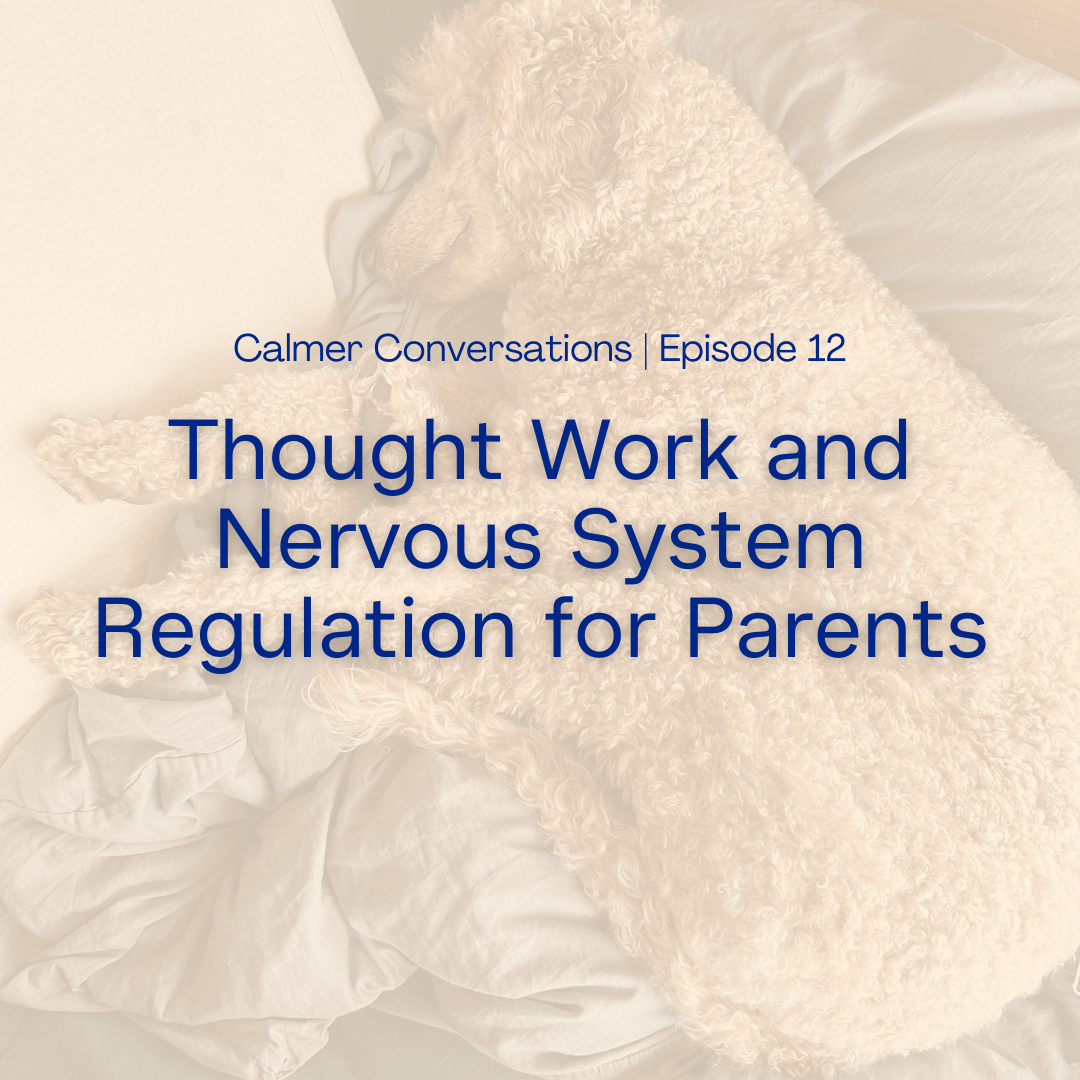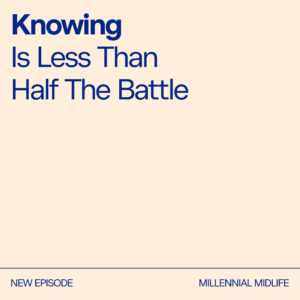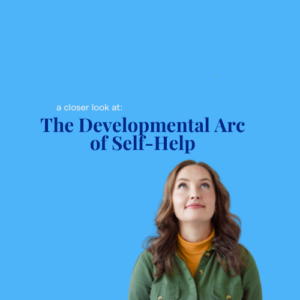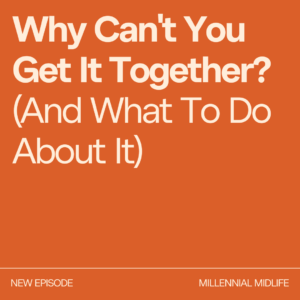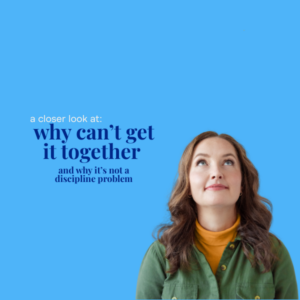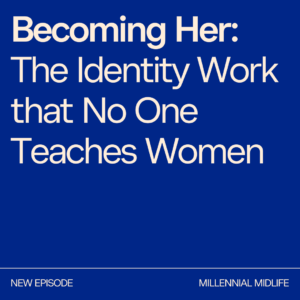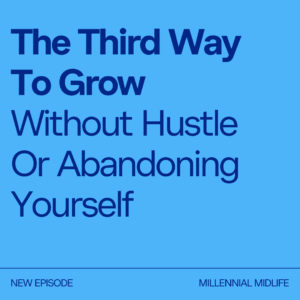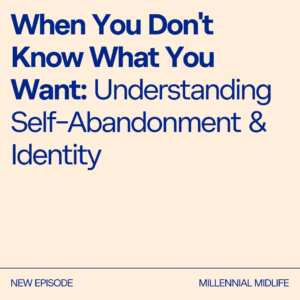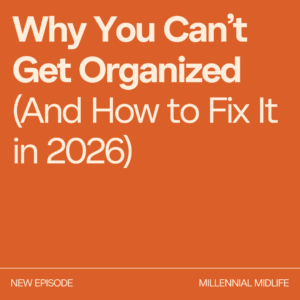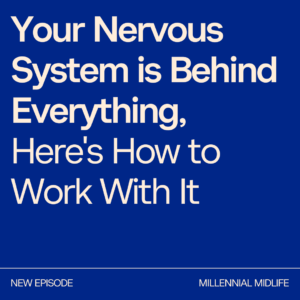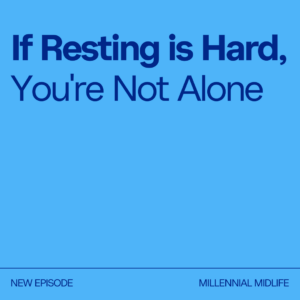Cecelia Baum Mandryk (00:01.112)
Hey and welcome to Calmer Conversations, episode number 12. I’m Cecilia, your host. Let’s get started. If you listened to last week’s episode, it was, I have, I was missing my microphone, so I found the cord for my microphone, which is great, but it was prompted by all the changes that I’ve been going through in my own life, all the shifts that we’ve been going through as a family, and how I’ve been using this work to support myself and to support,
my kids through this change. I went into a lot of how I’ve been using it and what’s been coming up for me. And today I wanted to talk a little bit more about how I’ve been using it as a parent because we had a huge shift with this move. So not only did we move, but both of my kids are now in a school and they’re in school for half days, five days a week. This is…
And I guess why I wanted to talk about this is through this process, I’ve interacted with a lot of other parents. Some of them are having their kids in school for the first time. And while we were kind of talking it back to school nights and at some other events, a lot of them mentioned how they have felt ill equipped to support their children. And so I just wanted to talk about how I’ve supporting my kids through the move with these tools and also into school. Again, for some reference and context,
I have two children, one is four and a half and the other one is about to turn two. So in a couple of weeks, there’ll be two. And if you just did some quick math, the four and a half year old, that means they were born two weeks before the pandemic started. So they’re born at the end of February, 2020. I was in Virginia at the time, or we were in Virginia at the time. Virginia went into lockdown, I think March 15th, but it was right around that kind of middle of the month in March, 2020.
And so I had my first child and we had our first parenting experience through the pandemic. At that time, my husband also was actively running a farm, a small scale fruit, vegetable, urban flower farm. And in Virginia, that time of the year is like full on. So if you’re familiar with farming, spring is kind of a very intense period where a lot’s happening. So.
Cecelia Baum Mandryk (02:21.272)
There was a pandemic, I had a kid. We didn’t really know anything about COVID at that time, so a lot of support wasn’t there. That’s not totally important, except to say that for the first year of her life, of my older child’s life, we weren’t really around other people at all. This is also when we moved. And then since then, we’ve been on this kind of small island. We have sort of unique working situations or chosen to create unique working situations in which we’ve been home with our kids.
their entire lives. And I think that some people say like, yeah, my kids have been with me. And they don’t quite understand the level to which we’ve been with our kids. And that I don’t think either of our kids has really been without us or not had access to one of us for their entire life, right? So they have, when grandparents have come to visit, as particularly the older one has gotten older, she spent some time alone with them. But for the most part, we’ve always been around them.
and they’ve always been around us. And so going to school is actually quite a large change. And it’s one of the reasons why we wanted to move because the older one is you can tell she needs more social interaction and needs to be engaged a little bit differently than what we are able to give her at this point. But it’s a big shift, right? So going from being with your parents as your really primary and only caregivers to being with other people.
is a big difference and doing something regularly day to day is also a big difference. So my kids have never had to get up at a specific time, for instance. We never had to have a schedule in the morning. I’ve obviously had a schedule because I generally work in the mornings, but they haven’t had a schedule. So getting them used to that. I would just wanted to, I think it’s easy to think about how these skills relate to yourself. And I think actually one of the reasons why sometimes people kind of don’t
do this work is they think it can be a little bit selfish. So they think that these skills are only going to benefit them. And that stops them from making investments in themselves or from doing this work because, again, they think that they’re the only ones who are going to benefit from it. I think that my kids benefit greatly from the work that I have done and from this work. And when I work with other parents, particularly those who have younger children, but also those who have teenagers and adult children,
Cecelia Baum Mandryk (04:47.448)
They noticed that this work really benefits the relationship they have with them. So one of the things that came up as my two year old was adjusting to school and they’re both going to a Montessori school is there’s kind of this week of transition where he was we were in the classroom with him for a little bit and then he was in the classroom the last two days of last week a little bit by himself and how we talk about school
and how we relate to them and how we regulate our own nervous system, I think can be really powerful. So one of the things that came up for me or has come up for me a lot through this move, but also has re -transitioned into this new phase of parenting. And I’ll be honest, it feels like an entire identity shift to have our children like, like I actually oddly feel like a parent now in some ways, because like I have kids and I interact with other parents as parents. Whereas before that wasn’t.
totally happening where we were, because we were in such a small place. A little bit, you know, like in swimming lessons and things like that, but not to this extent. And so being aware of the stories I have about parenting and about sending a kid to school was really useful. I’m gonna, again, a confession is that I have not always been a journaler. I know that a lot of times when people…
Maybe if we have like a stereotype of a coach or this kind of work, we think of somebody who’s like naturally been a journal or their entire life. I have lots of journals where I’ve written in like the first page and then abandoned them for whatever reason, mostly because I thought I wasn’t doing it perfectly and really wanted to do things perfectly. But as I’ve grown into this work, I know how powerful it is for me to collect my thoughts.
And this actually doesn’t need to be a written journal. I know some people don’t like writing. They do better speaking things out loud, whatever method works for you, videoing yourself even. But getting to a place where you can work through all of the thoughts and background you have about something like school and that you can work through all the things that you thought you might even have about like a schedule or engaging. And I’m saying this as somebody who has intentionally chosen to.
Cecelia Baum Mandryk (07:05.226)
create a very different looking life and schedule after having had a very traditional nine to five kind of situation, is being aware of all of that. And to use a term that most people might be familiar with is baggage, right? So to know what we’re going into this situation with is really powerful. Because if we don’t know what we’re going in with, then we don’t know the things that are influencing how we feel and how we act around our kids.
I want to say that again. So if you don’t understand the thoughts that you’re having around, for instance, school and going back to school, whether this is your first year or your 20th year with children in school, if you don’t understand your own thoughts about it, then they will inadvertently influence how you feel and what you do around your kid or kids or grandkids or nieces and nephews or kind of like
you know, nieces and nephews by choice. So whoever you’re around. so knowing and getting really clear about that is important. And so that’s something that I did over lots of walks. I do a lot of my thinking over walks and also some journaling, right? So actually writing things out. And oftentimes what I do is I think things through on a walk and then I also write things down so I can kind of collect them and I can have them to reference back to. And then working through those thoughts.
So deciding which ones of those served me and which ones didn’t serve me and which ones I didn’t think would be helpful for my kids as we went through this transition. So I could get really kind of clean and clear on how I wanted to think about them starting school and how I wanted to show up as a parent with them starting school. This, parent I talked to was saying how when their older child first started school, they really had a lot of work to do.
around the kind of detachment that happens, the separation that happens when you leave somebody at school, because of their experience with their own parent. And they found it to be really challenging because of what they had learned from a parent, right? And so knowing that we unknowingly give these things to our kids, and I’m not saying that I’m not giving them anything, right? Like, of course I am. That we unknowingly kind of give our kids
Cecelia Baum Mandryk (09:25.516)
different opinions or different feelings or even senses of guilt or senses of they’re hurting us by going away to school if we haven’t worked through our own stuff. So related to the thoughts, because always related to the thoughts for me are thinking about your nervous system, right? And so caring for one’s nervous system. so, I mean, one of the most important ways I’ve been showing up for my kids is caring for myself, which again, the previous episode talked a little bit more about.
But specifically in relationship to my kids, when I think about the thoughts that I’m having, then I can be clear about what thoughts I want to have and what stories I want to tell them about school. How I want to talk to them about school, how I want them to potentially think about school. Knowing that kids are absorbing the thoughts we share and even the thoughts we think about a situation and about a place, right? And so I saw this actually from another
Another coach, and I can’t remember who it was, pretty recently on Instagram when they were talking about if you want to have relaxed travel days, you have to be relaxed and have relaxing thoughts about travel. Right? You have to go into the travel thinking this is going to go well. We’re going to be able to handle whatever comes up. Things are going to happen how they’re supposed to happen. And I’ll be able to support me and my family through this. think the same thing is true about school. So again, getting clearer on what you want to think.
and how you wanna think about it so that you can give those thoughts to your kids. And then I was moving into nervous system work and the background behind that is also processing any old feelings and thoughts and experiences you have about school, which could be anything from like pressure to be perfect to feelings of abandonment to lowercase or uppercase trauma to like anything like that, right? And so working through what you have with a process like tapping or breathing,
guided meditation is the first step. Sort of like the first step for the thoughts, we’re writing down all the thoughts. And then after that, it’s being present in the moment and noticing what emotions are coming up for me first, right? Processing those emotions in the moment, seeing if I can get to a place of regulation, which doesn’t mean
Cecelia Baum Mandryk (11:46.282)
a flat affect, right? It doesn’t mean like having no emotions. It just means being within my window of tolerance through an emotional experience, like sending your kid to school for the first time. So that I can recognize and be present for my children’s emotions and not either take them on or project my emotions onto them. Right? So when I care for my nervous system,
And when I’ve processed my thoughts, what it allows me to do, it allows me to be present with other people in a way that doesn’t expect them to behave in a certain way so I can feel okay. And it doesn’t blame them for how I feel. And this is getting into how we relate to other people and how other people kind of relate to how we feel and our circumstances and things like that. And so many of us were taught.
that we can only feel okay if the people around us feel okay. And so very often we are in a rush to make others feel better so that we can feel better versus being okay with them and allowing them to have their experience of whatever’s going on. Right? And so this, by being able to do this work myself, what I was able to do in the moment and through last week, was, was whenever you listen to this,
it probably wasn’t last week, but at the beginning of the last week of August, their first week of school was being able to be present for their experience for them, right? So making it less about me in that moment, certainly still having my own experience and processing my own emotions and having my own thoughts and not gaslighting myself or expecting myself to be perfect, but when I relate to them and when I’m talking with them and when I’m interacting with them or dropping them off or picking them up.
it’s noticing and allowing them to have an experience and again, not making it about me and not getting them, not forcing them to be in a place which makes me feel okay. And maybe not even having expectations for how we think things are gonna go for them. So not going into a situation thinking like, they’re supposed to do this or this is supposed to go this way or it’s a quote unquote success if they do this or don’t do this. It’s more just saying, okay, I can show up.
Cecelia Baum Mandryk (14:10.908)
I can regulate myself so that I can be there for their emotions, be there for them, right? And so that I can not, my younger child’s teacher said, you’re being present like you’re being emotionally big and it’s being emotionally available, again, without that projection, without that blame, without taking on their emotions either. And in this way, it allows them to have their own experience.
And you as a parent or niece or aunt or uncle or whatever you might be in this child’s life, you get to be then a safe place where they know that they can come and they can just have their emotions, right? That they don’t feel rushed to get through them, that they don’t feel othered for having them, that their emotions don’t feel big or scary because they suddenly made you cry or you yell or you do something like that. And if you did cry or yell, that’s also fine, right?
All of these things are repairable. But I just, again, really wanted to touch on those two pieces of thoughts and nervous system work and that when you do it for yourself, you allow somebody else to be able to do it too. So you become the safe place where another being, another person can actually experience their emotions and get through something big for them and just have their experience be theirs and not get convoluted with yours. And I think that this is a really crucial part in parenting.
in terms of, I don’t know, maybe giving your kid a generational inheritance of calmness, of regulation, of being able to see and process their own emotions, which is something that not many of us receive, and perhaps more of us might receive, the more of us do this work. And so again, throughout the past,
really month and a half or two months, but maybe particularly over the last two weeks, I’ve really noticed how important this has been for them. There’s been, again, a lot going on, and it would have been really easy for me to get absorbed in my own stories and how things are stressful for me and how I didn’t have my own schedule and on and on and on, and really kind of put that on them, which would have made their first week harder, versus me being aware of what’s happening, me being aware of my stories, me being aware of my nervous system, being able to spend time.
Cecelia Baum Mandryk (16:33.536)
working on that, having the tools and actually doing the practices that help me there so that their week could be what their week was. And I will say it was not perfect, right? Like they had ups and downs. There were moments of smiles and tears and everything in between, and that’s fine. But they didn’t also have to deal, contend with.
my big emotions on top of it, right? I could kind of just be there with them and I could reflect things for them and I could help them understand their own experience through their own lens so that it was theirs and not mine. I wanna talk more about this work with parenting specifically because I think it is so key and crucial and I think there’s so many tools that are useful that we don’t actually get as parents and all of a sudden we’re dropped into this place of being responsible for little beings who have all of these big emotions and all of these big thoughts.
I don’t necessarily know how to deal with them. But I think that this is a really nice place to start. And again, this sort of like last episode was a little bit off the cuff, just I wanted to get it, capture it more in real time without me doing a lot of prep work because I think sometimes we miss that when we, when we see other people and we see people who are kind of teaching this work, we don’t actually see what them when they’re doing it. And this is, again, it’s not in the middle of last week, which probably would have been even more ideal. But it’s, it’s not too far after. Okay.
So parenting, you can do it with a calm brain. This work really impacts you and your community and everybody that you engage with, whether you have kids or not. And just know that when you start to do this work yourself and you stop making people responsible, suddenly you get to have a different experience with them. All right. If you are interested in doing this work more deeply, if you feel called to do it, come join me in the club. You get coached every week.
There’s somatic sessions to care for your nervous system every week, plus all of the recordings that you can go through whenever you want to. It’s a really powerful place to start to learn what’s happening in your brain, what’s happening in your body, and shift it so that you can show up differently in your life in a way that you feel happy and proud of. All right. I hope that you have a beautiful day. Thank you so much for being here, and I’ll see you next time.

